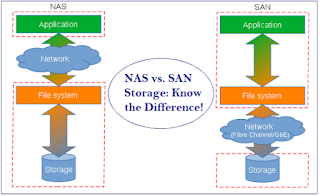The Pros and Cons of Enterprise NAS Storage
NAS (Network Attached Storage) is a file-level computer data storage server connected to a computer network providing centralized data backup and archiving. Here, we will be discussing the pros and cons of enterprise NAS storage.
PROS Enterprise NAS Storage:
-Performance:
When dealing with large files, the speed at which they can be accessed is crucial. NAS servers have the ability to quickly read and write data, which is due in part to their file systems and caching mechanisms. In addition, multiple users can access the same file simultaneously without any slowdown in performance.
-Cost:
Enterprise NAS storage can be a cost-effective solution, especially when compared to other enterprise storage solutions like SAN (Storage Area Network). When calculating the cost of enterprise NAS storage, you need to take into account the price of the hardware, software, and maintenance.
-Flexibility:
One of the main benefits of enterprise NAS storage is its flexibility. With NAS, you can scale up or down as needed without having to replace your entire storage infrastructure. In addition, you can use NAS for both primary and secondary storage applications.
-Simplicity:
Enterprise NAS storage is relatively easy to install and configure. You also don't need to invest in expensive Fibre Channel switches or host bus adapters since NAS uses standard Ethernet connectivity.
CONS Enterprise NAS Storage:
-Limited Capacity:
While NAS servers have come a long way in terms of capacity, they still pale in comparison to SAN solutions. For example, a 4U SAN chassis can hold up to 60TB of raw data while the largest NAS server on the market only has 48TB of capacity.
-Management Overhead:
Managing a SAN environment can be complex and time-consuming. With NAS, there is an additional layer of management overhead since you need to manage both the file system and the underlying operating system.
-Security Concerns:
Since enterprise NAS storage uses standard Ethernet connectivity, it is more vulnerable to security threats than Fibre Channel based SAN solutions. In addition, Nas servers typically have fewer security features than SAN solutions.
Enterprise NAS storage is a popular solution for small and medium businesses who want to improve theirstorage infrastructure without breaking the bank. However, it's important to weigh the pros and consbefore making a decision. Thanks for reading!


Comments
Post a Comment